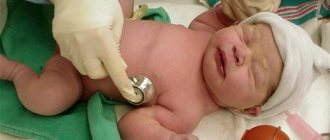Who can be adopted from an orphanage?
Orphans and foundlings may be put up for adoption. There are no obstacles if the child is left without the care of parents who are deprived of parental rights or declared incompetent and missing.
In some cases, adoption is possible with the written consent of the biological parents or one parent, for example, from a previous marriage.
Important! It is impossible to distribute blood brothers and sisters into different families, unless otherwise provides for the interests of the children.
Courts can also make a positive decision on the transfer to another family of a child who cannot be adopted by law if evasion of parental obligations or cruel treatment is established.
How to adopt a child: detailed steps
If you decide to adopt a child, you will have to go through several stages:
- Collection of necessary documents for adoption.
- Passing school for foster parents.
- Contacting the child care center to select a child.
- Creating an application with a request to pick up a baby.
- Meeting with a child.
- Preparation of adoption papers.
What can you do to ensure that the child ends up with you after foster care?
To adopt a child after a foster family, you will have to go a long way. Follow the instructions:
- Contact your local social service for advice. Be sure to have a passport, marriage certificate, income certificate, and health document.
- A specialist who works in a social service must make sure that living conditions are suitable for the child and his future parents.
- Completion of training. It is important to take small courses that will allow you to understand how to treat a child and what difficulties may arise from the very beginning. This is how you show your best side.
- Meeting of the Commission dealing with the protection of children's rights. She will review your application and documents, and then issue permission to start a family.
- Search for a child.
In this case, the search will not be too long, since you will take the child from the family that previously adopted him. IMPORTANT! Adoption permission can only be obtained if the previous adoptive parents have been deprived of parental rights. - A meeting of the Commission at which a decision is made to approve or reject the application.
Adopting a child is a very responsible decision, with the adoption of which comes a very large responsibility and a wide range of responsibilities. The state today provides serious support to this category of persons in the form of various benefits and allowances.
Requirements for adoptive parents
Requirements for adoptive parents are regulated by Art. 127 of the RF IC, as well as Government Decree No. 275. They can be adult, capable citizens of both sexes.
The marriage must be officially registered with the civil registry office (part 2 of article 1 of the RF IC). However, a religious wedding in the occupied territories of the former USSR during the Great Patriotic War is also equivalent to an official one.
Both citizens of the Russian Federation and foreigners have the right to adoption. However, in the second case, transfer of the child to a foreign family is possible if his data has been in the bank for at least a year. In addition, the adoptive parent is subject to separate requirements in terms of living conditions, income, physical and mental health.
In what cases can they refuse?
In some cases, adoption may be denied. This can happen in the following situations:
- Lack of a permanent source of income.
- Having a criminal record.
- Poor health.
- Drug and alcohol abuse.
- Previous deprivation of parental rights.
In conclusion, it is worth noting that adopting an adopted child is not as simple as it seems at first glance. But, if you want to give your child a good future and provide him with everything necessary for a happy life, nothing can stop you from doing this.
Who can't be them?
When making a decision, the court is guided by the interests of the minor, trying to provide him with safe and decent living conditions. Therefore, according to Art. 127 of the RF IC, the following cannot apply for adoption:
- a spouse or both spouses who are recognized by a court as incompetent or partially capable;
- persons deprived of parental rights;
- guardians removed from guardianship by a court decision due to improper fulfillment of obligations;
- persons previously excluded from adoption on the grounds set out in Art. 141 RF IC;
- citizens who have been diagnosed with diseases that prevent adoption by law;
- persons who cannot provide the adopted person with the subsistence minimum established in the region;
- formerly convicted or prosecuted for crimes against sexual integrity;
- citizens who do not have a permanent place of residence;
- homosexual couples married outside the Russian Federation.
Spouses who are not officially married cannot jointly adopt one child.
The court will refuse applicants who, in accordance with the procedure established by law, have not completed the program of pedagogical and mental training, as well as inspections by the guardianship and trusteeship authorities.
List of diseases preventing the procedure
The list of diseases for which the procedure cannot be performed is regulated by Government Decree No. 117 of February 14, 2013. Among them:
- active tuberculosis with a chronic course of the disease;
- infectious diseases, hepatitis, HIV and AIDS, occurring under dispensary supervision;
- malignant neoplasms in the primary stages before treatment, as well as in the last stages, regardless of therapy;
- behavioral and mental disorders occurring under dispensary observation;
- drug and alcohol addiction, substance abuse;
- disability group I.
According to Bill No. 115-FZ of May 29, 2019, courts can approve candidates for HIV-infected adoptive parents if the child lived with them due to family circumstances.
How to cancel guardianship and deprive parental rights: step-by-step instructions
It is important to decide whether you need this, since this issue presents many difficulties. Be sure to take all the pros and cons into account. After this, you can begin the procedure.
- Search for grounds for deprivation of parental rights . Remember that if a child is over 18 years old, his parents cannot be deprived of parental rights. This applies to those who:
- Didn't pick up the child from the maternity hospital.
- Avoids fulfilling his responsibilities in raising a child.
- Treats him cruelly.
- Drinks alcohol and drugs in large quantities.
- Resorts to exploitation of the baby.
- Received a criminal conviction for child abuse.
- Collection of evidence and documents . All this is carried out in accordance with the Civil Code of the Russian Federation. As documents you cannot do without a passport, certificate of residence, certificate of income.
- Payment of court fees . Without her, the adoption case will not advance one step. Be sure to keep your receipt.
- Filing a claim and waiting for trial .
NOTE! After collecting the necessary set of documents, they will need to be submitted to the court. The review may take some time, after which you will be notified of the results. - Court . It is better to choose a trusted lawyer in this matter, as he will help you avoid any troubles. However, if you do not have such an opportunity, you can get legal assistance for free.
Read more about how the adoption of a child is canceled and what consequences should be expected in a separate article, and from this article you will learn who may be the initiator of the termination of mutual obligations.
What is necessary for adoption from an orphanage?
The legislator imposes certain requirements on applicants. They are regulated by the Family Law of the Russian Federation and the Rules for the Transfer of Children for Adoption. The following describes in detail what is needed to adopt a child left without parental care, whether it is possible to adopt an adult, or how a man out of wedlock, an unmarried woman, as well as a single mother who is unmarried and raising her child alone, can do this. can they be refused?
What living conditions are required?
Adoptive parents must provide documents confirming ownership of the residential premises or a lease or social tenancy agreement. Both spouses must have permanent registration. The fact of residence at the place of registration does not matter.
Residential premises must meet the following conditions:
- retains at least 12 sq. m. for each resident, including the adopted child;
- the apartment or house meets technical and sanitary-epidemiological requirements;
- Persons of different sexes over the age of 9 cannot live in the same room.
Disabled children will need to be allocated a separate room (Part 3 of Article 17 of Federal Law No. 181).
Family status
According to Art. 127 of the RF IC, the child will be given only to a traditional couple who have officially registered the marriage. In the case of cohabitation, only one spouse can adopt a child, since citizens who have not formalized their marriage are prohibited from jointly adopting one child.
The transfer of children to homosexual couples is not permitted, regardless of their legal marriage.
What should the family income be?
The total family income must provide the child with at least 1 minimum wage established in the region (Part 1 of Article 127 of the RF IC). When calculating the cost of living, total earnings are divided among family members. These include children, parents and spouses themselves. Third-party persons who have been moved into the residential premises with appropriate rights are considered family members.
Important! Total income does not take into account payments for treatment and rehabilitation, unemployment benefits, subsidies for housing and communal services, and social benefits for the poor.
Age of a minor left without parents
Adoption of a person under 18 years of age is allowed (Part 2 of Article 124 of the RF IC). Persons who have reached 18 years of age are not subject to adoption (Part 2 of Article 124 of the RF IC). This is due to the fact that upon reaching adulthood, a citizen acquires full legal capacity and, from the point of view of the law, no longer needs parental care and maintenance.
If a child is recognized as emancipated before reaching the age limit, for example, upon marriage or going to work, he cannot be adopted either (Article 27 of the Civil Code of the Russian Federation).
The younger the child is at the time of adoption, the better. The optimal range is considered to be from 1 month to 7 years.
From what age is it allowed and up to what age?
The legislation does not establish at what age it is better to adopt a child, or the maximum age of the adoptive parent. The main thing is that candidates are of legal age. According to Art. 128 of the RF IC, the age difference between the adoptive parents and the adopted child should not be less than 16 years. The exception is cases of adoption by a stepmother or stepfather.
The court has the power to reduce the minimum age limit if it considers it appropriate.
Why adoption may be denied
Adoption of children may be refused for a number of reasons:
- If a parent is recognized as partially or fully incompetent, only one of the spouses in the couple is also fully or partially incompetent.
- If at least one of the spouses was previously deprived of rights to a child.
- If one or both parents were previously removed from custody of the child due to improper performance of their functions, as well as were deprived of the functions of adoption in a court hearing.
- Future parents do not have a permanent residence permit or place of residence.
- At least one of the future parents has a criminal record for serious and especially serious crimes.
- In Russia, same-sex couples are not allowed to adopt children, even if their relationship is legalized in the country where they are from or where they registered it.
- The parents are quite healthy and do not suffer from mental or physical illness, alcohol or drug addiction.
Before the adoption procedure, each potential adoptive parent undergoes a medical examination using a specially approved form.
There are also cases that may affect the refusal to adopt a child, for example, you cannot adopt children whose parents were deprived of parenting rights less than 6 months ago. A refusal can be obtained due to various factors relating to the baby’s health:
- He is in hospital treatment for an infectious or mental illness.
- Undergoing treatment for drug addiction, alcoholism or tuberculosis.
- Has a history of cancer of any stage of complexity.
First-hand adoption story:
Documents for potential adoptive parents
If a couple wishes to become potential parents in 2021, they need to collect documents to adopt a child. Depending on the situation, the set of documents and requirements for them will vary. For example, if a stepmother or stepfather wants to adopt a stepson or stepdaughter, the main requirement for them is an officially registered family relationship with the child’s natural parent.
If a baby is adopted from an orphanage or a baby home, parents must prepare:
- Application for adoption to the guardianship authorities.
- Passports of one or both parents.
- Own biographies.
- Information about income from your current place of work for the last year.
- Documentation confirming the rights to real estate of the adoptive parents.
- Extract from the house management about the composition of the family.
- Information about the absence of convictions for serious, especially serious and intentional crimes.
- Copies of personal accounts certified by a notary.
- An inspection report drawn up by a representative of the guardianship authorities for the future home of the baby, in which the adoptive parents currently live.
- Medical certificate confirming the level of health of the adoptive parents.
If a married couple acts as adoptive parents, they provide the consent of the second spouse to the adoption (since the procedure is usually carried out by one person), copies of documents confirming the registration of their marriage, characteristics of both parents from the place of registration.
What conditions apply to a single man and a woman without a husband?
The law does not distinguish between single adoptive parents and two-parent families. However, if several applicants apply for one child, then preference will be given to married spouses.
A single man, woman and single mother are subject to general requirements established by Art. 127 of the RF IC, therefore, from a legal point of view, this procedure is no different from the standard one; it is possible to adopt a child. In practice, such candidates are subject to more stringent requirements.
Guardianship and trusteeship authorities conduct a thorough check of documents, ask about the grounds for adoption, possible changes in family and financial status. In order for the candidacy to be approved, it will be necessary to clarify with whom the child will stay during the period of work, as well as provide an extensive list of information from the autobiography.
Can a lonely person be refused?
A single man, woman or single mother can be refused on the same grounds as a married couple. The list of these grounds is established by Art. 127 RF IC. Thus, this is a discrepancy with housing and age requirements, lack of necessary documents, or the presence of diseases that prevent adoption.
If the adoptive parent's candidacy is not approved for reasons not specified in the law, the issue will need to be resolved in court.
The Mystery of Adoption
The Constitution of the Russian Federation states the right of citizens to personal and family life. From it comes a rule that guarantees the strict preservation of information about the act of adoption. All officials participating in the process who have relevant information are required to keep it secret. Attention: civil servants will be punished for disclosing information about the placement of children in families without the permission of the participants in the process.
Child's personal data
In order to maintain the secrecy of information about the adoption of children, new parents have the right to completely change the following data:
- last name (give their own);
- patronymic (corresponds to the name of the male adoptive parent);
- Name;
- date of birth;
- place of birth.
Attention: the issue of changing the baby’s personal data should be initiated during the legal process (and thought about in advance).
The court decision provides grounds for re-registration of the child with new full name and other data in the registry office. An exception is cases of adoption of children who have celebrated their tenth birthday. They have the right to refuse a new name, surname or patronymic.
What kind of doctors do you need to see to take your baby?
The procedure for medical examination before adoption is regulated by Appendix 1 to Order of the Ministry of Health of Russia dated June 18, 2014 N 290n.
List of doctors and tests that need to be taken:
- general examination by a therapist, who will also write a referral to specialists;
- molecular biological blood testing and determination of antibodies to hepatitis and HIV;
- determination of the Wasserman reaction to exclude syphilis;
- X-ray examination of the lungs or fluorography for further referral to a phthisiatrician;
- examination by an infectious disease specialist to exclude prion, viral, bacterial and fungal diseases;
- submitting urine, feces and fluorography to a TB doctor to completely rule out tuberculosis;
- examination by a psychiatrist to exclude mental and behavioral disorders;
- donating blood and urine to a narcologist, who will confirm the absence of alcohol, drug and toxic addiction.
A medical examination is carried out to confirm the absence of diseases that would prevent adoption. The person being adopted also goes through the appropriate procedure.
During the medical examination, specialists are guided by the patient’s medical history and research results, therefore, if they suspect the development of an unfavorable clinical picture, they may be referred to:
- dermatologist;
- mammologist;
- immunologist;
- cytologist;
- pulmonologist;
- hygienist.
Where should you go?
A medical examination can be taken at medical organizations providing primary health care, as well as at the clinic at the place of registration (Part 3 of Appendix 1 to the order of the Ministry of Health).
Doctors are allowed to study not only in public but also in private healthcare institutions. A prerequisite is to have a license to conduct medical activities.










